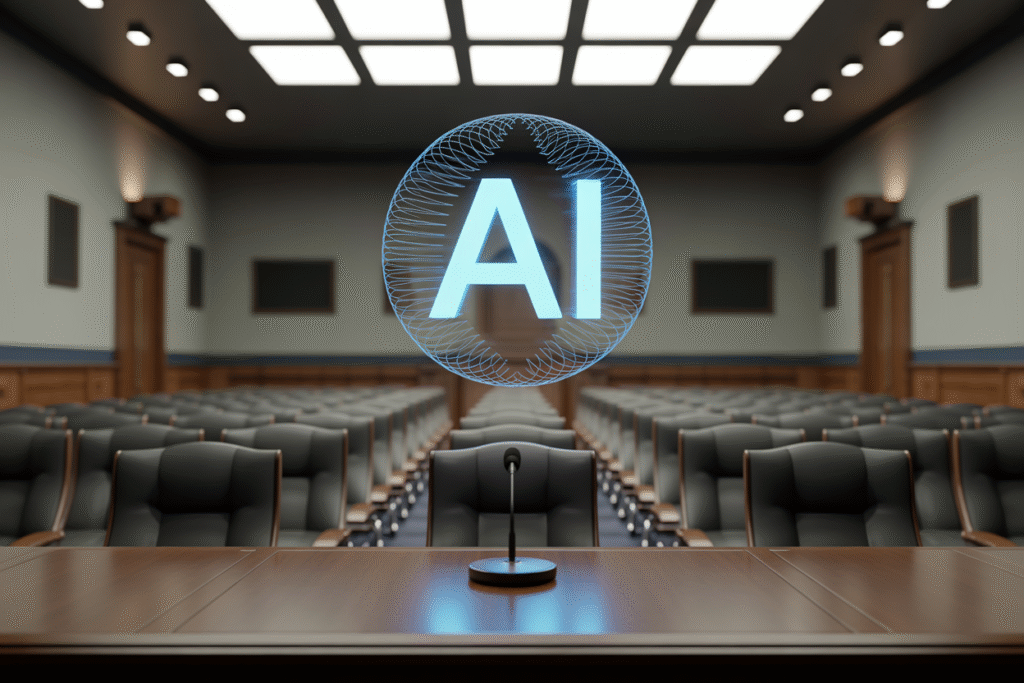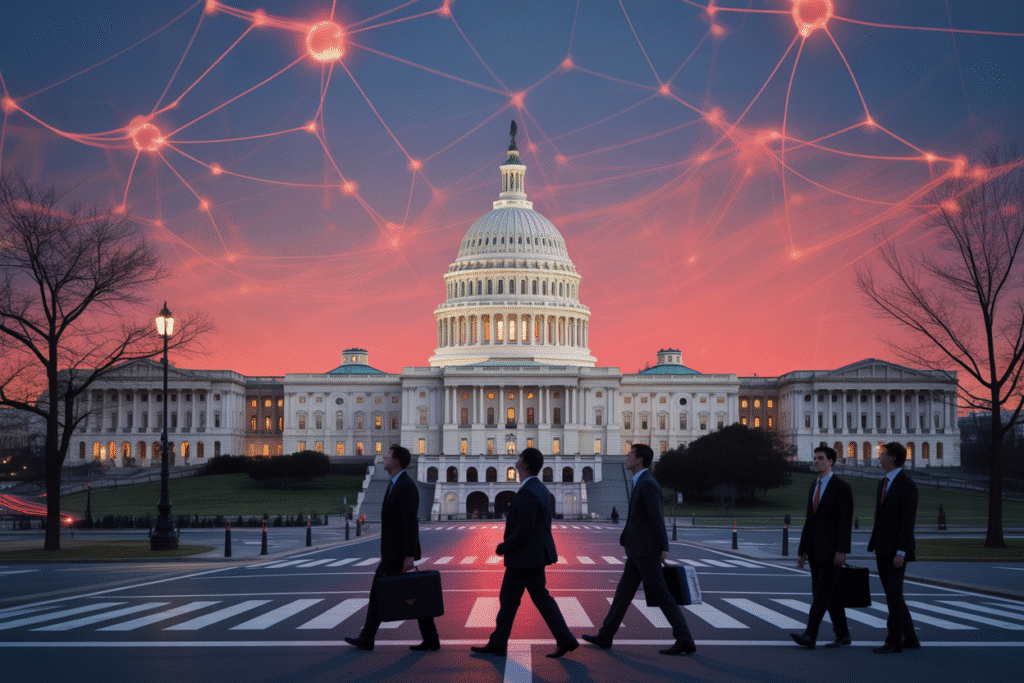Is AI regulation a safety net or a power grab? Dive into the viral debates reshaping tech politics.
AI politics just exploded across social feeds. From accusations of corrupt lawmakers to memes branding tech moguls as surveillance apostles, the debate is raw, loud, and impossible to ignore. Here’s what’s driving the fire—and why your timeline will never be the same.
Regulation or Power Grab? Inside the Viral Accusation
The latest AI politics news is buzzing with accusations that lawmakers are weaponizing regulation to protect their own power. One viral post from @VraserX claims politicians fear AI because it threatens their traditional channels of corruption. The argument? If AI can bypass bureaucratic gatekeepers, the old guard loses leverage. Replies range from cheers of “finally, someone said it” to sharp rebuttals insisting oversight is still vital. The debate boils down to a single question: is AI regulation a genuine safety measure or a calculated power grab?
Supporters of the power-grab theory point to three red flags:
• rushed bills with vague language
• exemptions carved out for well-connected firms
• simultaneous lobbying for lucrative government contracts
Critics counter that unchecked AI can entrench bias, spread misinformation, and erode democratic norms. Both sides agree on one thing—AI politics is no longer a niche topic. It’s front-page news, and the stakes keep rising.
What makes this conversation so sticky is its emotional charge. People who distrust institutions see regulation as proof of conspiracy. People who fear runaway tech see deregulation as reckless. The middle ground—smart, transparent rules—feels increasingly lonely. Yet that’s exactly where most voters say they want to land.
Surveillance Saints or Data Devils? The Meme That Lit the Fuse
Scroll through your feed and you’ll spot another hot take: tech titans cast as modern-day surveillance apostles. A meme shared by @EscanorReloaded slaps the label “Beast’s Apostles of AI” on Elon Musk, Sam Altman, and others, arguing they’re turning data into a new religion. The post pairs a dystopian graphic with biting captions about Palantir-style monitoring. Within minutes, thousands repost, quote, and argue. Some users swap horror stories of smart-city cameras tracking their every move. Others defend the same tools as necessary for public safety.
The debate splits into two camps:
1. Privacy defenders who see creeping authoritarianism
2. Tech optimists who believe innovation outweighs risk
Both camps use real-world examples. Privacy advocates cite facial-recognition misuse in protests. Optimists point to AI that finds missing children. The emotional tug-of-war keeps engagement sky-high, proving that AI politics isn’t just about code—it’s about identity. Are you Team Freedom or Team Security?
Meanwhile, everyday users feel caught in the crossfire. Post a baby photo and AI scrapers might harvest it for biometric training. Skip the photo and you miss out on digital community. The tension spills into policy discussions: should platforms require opt-in consent for AI training? Should governments ban certain surveillance tools outright? No consensus is in sight, but the volume keeps climbing.
One thing is clear: the public no longer trusts vague promises of “responsible AI.” They want receipts—audits, transparency reports, and enforceable limits. Until then, every new product launch feels like another potential privacy landmine.
Pink Slips and Policy Fights: When AI Steals Your Paycheck
If regulation and surveillance feel abstract, job displacement hits home. @DarrigoMelanie’s thread warns that deregulating AI will let companies “replace workers with bots” and funnel profits to shareholders. The post strikes a nerve because it names real victims—writers, analysts, customer-service reps—whose roles are already shrinking. Comment sections fill with layoff stories, union calls to action, and grim jokes about retraining as baristas.
The economic stakes are massive. Studies suggest generative AI could automate up to 30% of current work tasks within a decade. That doesn’t mean 30% unemployment, but it does mean disruption. Who pays for retraining? Who decides which jobs vanish? The answers shape AI politics as much as any Senate bill.
Policy proposals are flying:
• robot taxes to fund universal basic income
• mandatory reskilling programs funded by tech giants
• stricter merger reviews to prevent monopsony power
Each idea sparks fierce pushback. CEOs argue robot taxes will stifle innovation. Unions say voluntary reskilling is a PR stunt. Economists warn that half-measures could widen inequality. The conversation feels urgent because paychecks—not privacy policies—are on the line.
Yet amid the doom, a quieter narrative emerges: AI can also create jobs we haven’t imagined. Prompt engineers, AI ethicists, and data-custodians are already hiring. The question is whether society can move fast enough to bridge the gap between old roles and new ones. Until then, every viral layoff thread fuels the fire of AI politics, turning tech policy into kitchen-table economics.


